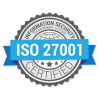The role of procurement has transformed significantly over time. In an era where artificial intelligence, machine learning, and automation are reshaping the business landscape by enhancing efficiency in processes, improving accuracy in findings and helping teams make better decisions for the business, it’s easy to fall into the trap of believing that technology alone can solve all our challenges.
Seasoned procurement directors know that while digital tools are invaluable, they’re only as effective as the people wielding them – there’s only so much that technology can do for you.
In this article, we will delve into the critical role that human skills play in procurement; even as digital advancements continue to reshape the industry.
The Rise of Digital Procurement
According to a report by Deloitte, 70% of procurement leaders are using or planning to use AI and machine learning to improve procurement processes. Additionally, Gartner predicts that by 2025, digital procurement will enable businesses to achieve up to a 20% reduction in procurement costs.
Now, while technology can automate routine tasks and provide data-driven insights, the human element remains the cornerstone of successful procurement strategies, especially when it comes to meeting complex business needs.
As procurement continues to evolve from a purely transactional function to a strategic business partner, the skills required of procurement professionals have transformed. We’ll explore the critical human skills that set apart high-performing procurement below.
Human Skills that are Essential in Procurement
Strategic Thinking
Gone are the days when procurement was just about finding the lowest price. Today’s procurement professionals need to think strategically, aligning their activities with broader organizational goals. This involves:
- Understanding the company’s long-term objectives
- Identifying opportunities for value creation beyond cost savings
- Developing and implementing comprehensive category strategies
- Balancing risk and reward in supplier relationships
Without strategic thinking, procurement professionals would not be able to capture the big picture and understand how procurement decisions can impact the overall business strategy of the organization. For instance, during the COVID-19 pandemic, procurement leaders had to quickly reassess their strategies to handle disruptions. According to a McKinsey report, companies with agile procurement.
Adaptability and Problem-Solving:
Procurement professionals also need to be adaptable. They must be able to respond to unexpected challenges with agility and creativity. They need to:
- Navigate rapidly changing market conditions
- Find innovative solutions to supply chain disruptions
- Quickly adjust strategies in response to new regulations or technologies
- Turn challenges into opportunities for improvement and innovation
A report by the Hackett Group highlights that top-performing procurement organizations are those that can swiftly pivot their strategies in response to changing conditions cause by internal or external factors. This adaptability ensures continuity of processes and minimizes financial risks for the area.
Negotiation and Communication:
While AI can crunch numbers and identify patterns, the nuanced art of negotiation remains a distinctly human skill. Effective procurement professionals must be able to:
- Build and maintain relationships with suppliers
- Communicate complex ideas clearly to stakeholders at all levels
- Negotiate win-win agreements that create value for all parties
- Influence internal stakeholders to gain buy-in for procurement initiatives
Effective negotiation and communication skills are vital for building and maintaining strong relationships with suppliers. A study by the Chartered Institute of Procurement & Supply (CIPS) found that 60% of procurement professionals consider negotiation skills to be their most important competency.
And that does not cover only getting the best price for a service or product; effective negotiation involves creating win-win situations that benefit both the company and its suppliers to solidify a strong relationship between them. Good communication skills help in clearly articulating needs, expectations, and concerns, fostering trust and collaboration.
Leadership and Team Management:
Strong leadership and team management skills are essential for developing a collaborative and high-performing procurement team, especially since procurement is becoming a much more strategic department. Procurement leaders need to:
- Inspire and motivate their teams
- Foster a culture of continuous learning and improvement
- Manage cross-functional teams and projects
- Develop the next generation of procurement talent
A survey by the Hackett Group uncovered that top-performing procurement organizations have a higher proportion of leaders with advanced leadership skills compared to their peers. Leadership in procurement involves guiding a team through complex and often challenging situations. This includes setting clear goals, providing support and resources, and creating an environment where team members feel valued and motivated.
Effective leaders also focus on continuous improvement and innovation, ensuring that their teams are always prepared to meet new challenges.
Integrating Human Skills with Digital Tools
While human skills are crucial, they’re most effective when combined with cutting-edge digital tools. The key is finding the right balance and using technology to augment, not replace, human capabilities. This involves:
- Training and Development: Investing in continuous training and development programs to enhance the skills of procurement professionals. This ensures they can effectively use digital tools and apply their human skills in a digital context.
- Collaborative Platforms: Utilizing collaborative platforms that enable seamless communication and collaboration between procurement teams and suppliers. These platforms can enhance transparency, streamline processes, and improve relationship management.
- Data-Driven Decision Making: Leveraging digital tools like Thinking Machine to gather and analyze data, while using human judgment and expertise to interpret the data and make strategic decisions. This hybrid approach can lead to more accurate and impactful outcomes.
- Change Management: Implementing change management strategies to ensure a smooth transition to digital procurement. This involves addressing resistance to change, fostering a culture of innovation, and providing support throughout the transition process.
Key Takeaways
- Human skills like strategic thinking, adaptability, negotiation, and leadership remain critical in procurement, even as technology advances.
- Data-driven decision making, powered by AI and analytics but guided by human insight, will be a key differentiator for procurement teams.
- The most successful procurement teams will be those that can effectively integrate human skills with digital tools.
- Change management skills are crucial for successfully implementing new technologies and ways of working.
- Continuous learning and development are essential to keep pace with technological change and evolving business needs.
In essence, by focusing on developing your team’s human skills and effectively integrating them with digital tools, you can build a procurement function that not only meets but exceeds your organization’s evolving needs. Remember, in the digital age, your greatest asset isn’t your technology – it’s your people.


